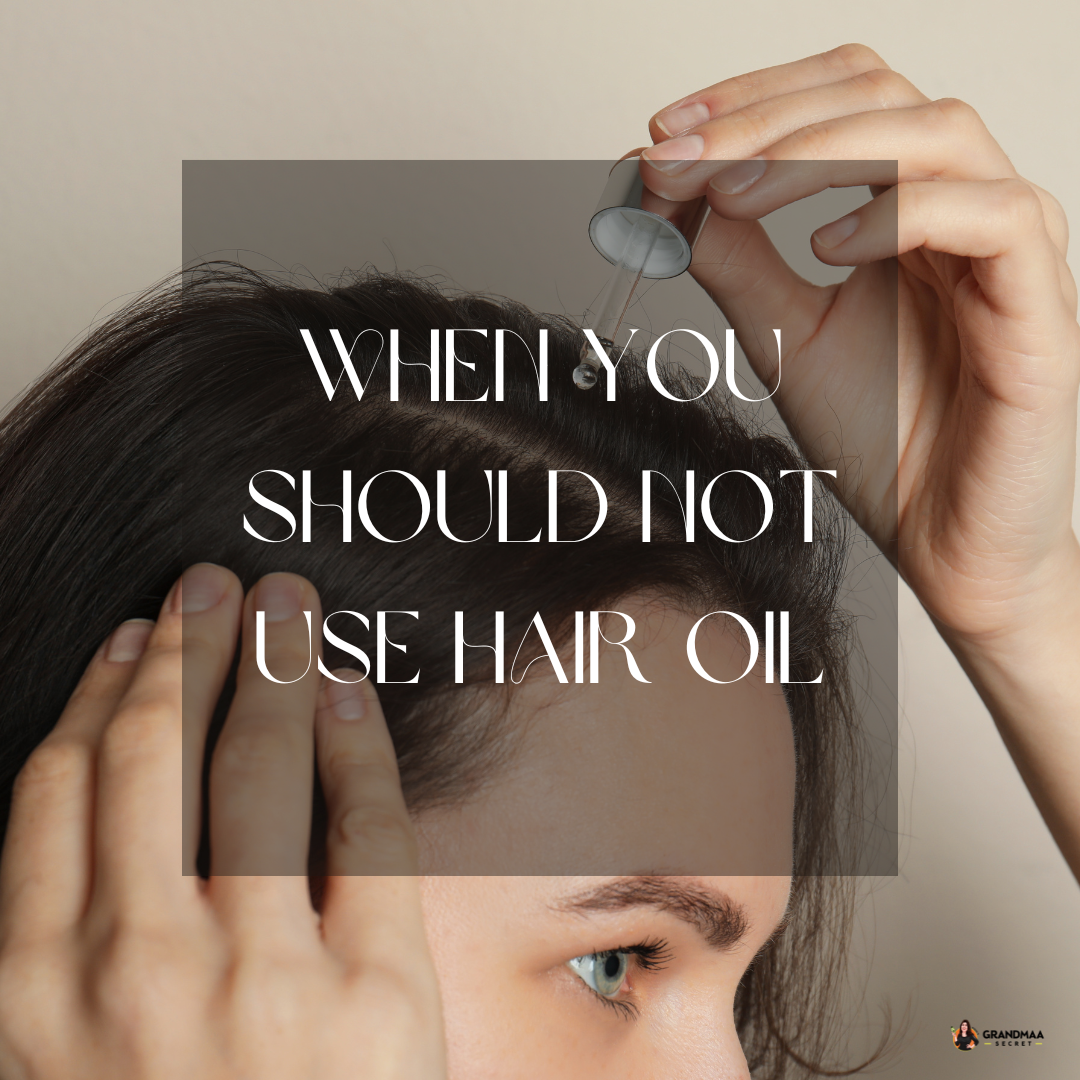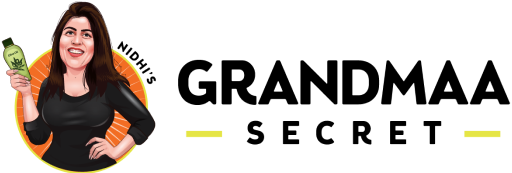Hair oiling is often seen as a magical solution for all hair problems. But like everything else, there’s a time and place for it. If used incorrectly, hair oil can worsen your scalp and hair health. Let’s read the situations where you should avoid hair oil, common mistakes people make, and smart alternatives to keep your hair looking its best.
When to Skip Hair Oil Completely
1. Serious Dandruff or PsoriasisOiling your hair when you have a severe dandruff problem or conditions like psoriasis can trap dirt, flakes, and moisture, making the situation worse. These conditions need medicated shampoos and treatment instead of oil.
2. Oily Scalp with DandruffAn oily scalp already produces excess sebum. Adding oil to it can clog pores and encourage fungal growth, which makes dandruff worse. Use a clarifying shampoo instead.
3. Scalp Infections, Boils, or CutsIf you have boils, cuts, or infections on your scalp, avoid applying oil. Oil can act as a barrier, preventing wounds from healing and spreading bacteria to other areas of your scalp.
4. Acne on Forehead or HairlineForehead acne often gets worse if you oil your hair too frequently. The oil can drip down, clogging the pores and causing more breakouts. If acne is an issue, reduce your oiling sessions or stop altogether for some time.
5. Alopecia or Severe Hair LossIf you are experiencing alopecia (a medical condition causing hair loss), avoid oiling as a self-treatment. It’s better to consult a dermatologist for proper advice.
Common Hair Oiling Mistakes to Avoid

1. Oiling Before Working Out
Sweating with oil on your scalp is not a good idea. The combination of sweat and oil can clog pores, cause scalp acne, and even lead to itching. Always oil your hair after your workout, not before.
2. Leaving Oil on for Days
Some people think leaving oil on for multiple days makes hair healthier. This is a myth! Long durations of oiling attract dust and grime, leading to scalp buildup. A few hours or overnight oiling is more than enough.
3. Using Too Much Oil
More oil doesn’t mean more benefits. Over-oiling makes it hard to wash out and can weigh your hair down, leaving it greasy. Stick to a small amount that spreads evenly on your scalp.
4. Not Washing Properly After OilingLeaving traces of oil in your hair after washing can make it look dull and sticky. Always double-check that you’ve washed out all the oil using a Gentle shampoo.
Who Should Avoid Hair Oiling?
Some people should avoid oiling altogether or use it sparingly. If you fit into any of these categories, rethink your hair care routine:
- People with extremely oily scalps.
- Individuals with chronic scalp issues like eczema or dermatitis.
- Those who use many styling products that already coat their hair.
- Anyone experiencing excessive hair fall without a clear reason.
When Hair Oil Might Not Be the Solution

If your hair thinning is due to hormonal changes like PCOS or thyroid issues, oiling alone won’t fix it. Medical intervention and a balanced diet are essential.
2. Postpartum Hair FallNew moms experiencing postpartum hair loss often oil their hair thinking it will help. While a gentle massage can improve blood flow, over-oiling can clog pores and worsen the situation. Use lightweight oils or consult a doctor for postpartum hair care.
3. Hard Water ProblemsIf you live in an area with hard water, oiling can sometimes worsen the buildup on your scalp. Combine oiling with a chelating shampoo to keep your scalp clean.
Smart Alternatives to Hair Oiling
If oiling isn’t working for you or you’re in a situation where it’s best avoided, try these alternatives:
- Aloe Vera Gel: Soothes the scalp and hydrates hair without making it greasy.
- Hair Serums: Lightweight serums can replace oil for those with oily scalps.
- DIY Hair Masks: Use yogurt, banana, or hibiscus masks to nourish your hair.
- Scalp Tonics: These are water-based and promote a healthy scalp without clogging pores.
- Dry Scalp Sprays: Perfect for quick hydration without the heaviness of oil.
How to Oil Your Hair the Right Way
If you’re oiling your hair, make sure you’re doing it correctly:
- Warm the Oil: Slightly warm oil penetrates better into the scalp.
- Apply in Sections: Divide your hair into sections and apply oil directly to the scalp.
- Massage Gently: Use your fingertips to massage in circular motions.
- Leave It On for a Few Hours: One to two hours is usually enough.
- Wash Thoroughly: Use a mild shampoo to remove the oil completely.
Hair oiling is a fantastic tradition when done right. But it’s not a one-size-fits-all solution. Pay attention to your scalp’s needs and avoid oiling when it might do more harm than good. Healthy hair is all about balance—listen to your scalp, and it will thank you!







